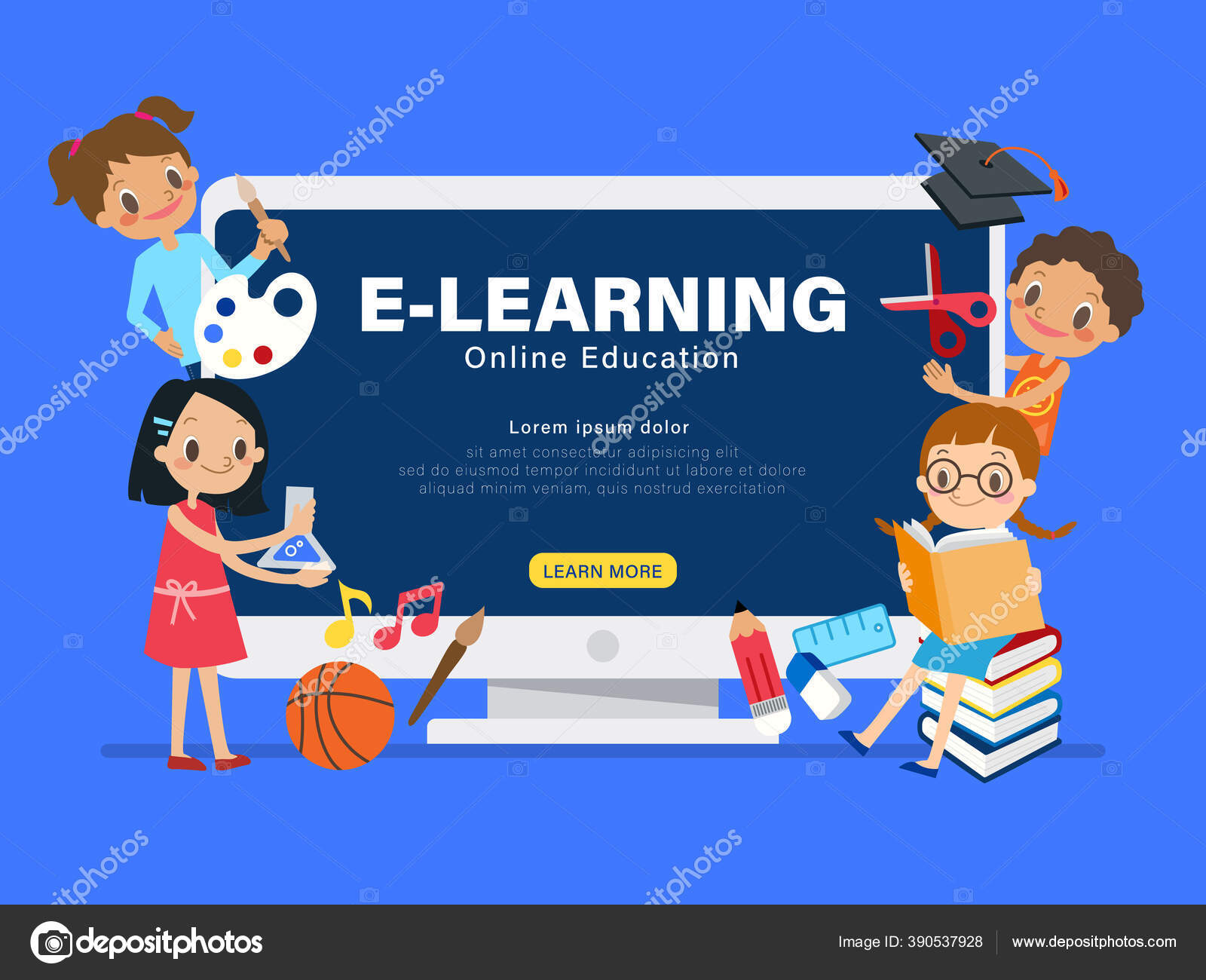Education and Study for Children and Kids: Finest Learning Approaches
Education and Study for Children and Kids: Finest Learning Approaches
Blog Article
Discovering the Significance of E-Learning for Youngsters in the Modern Educational Landscape
In today's quickly evolving academic landscape, the importance of e-learning for youngsters can not be overstated. E-learning systems provide unmatched accessibility and flexibility, catering to diverse understanding designs while fostering vital electronic literacy skills. These platforms integrate interactive aspects that boost engagement and promote vital reasoning, preparing students for future challenges. As we consider the transformative impact of innovation on education and learning, it is essential to discover just how e-learning can additionally improve finding out outcomes and cooperation among young learners. What details benefits does e-learning deal that standard approaches may not, and exactly how can these be maximized for optimum educational advancement?
Benefits of E-Learning
E-learning uses various benefits for youngsters, transforming the way they get expertise and abilities. One of the primary benefits is availability. E-learning platforms make it possible for children to accessibility instructional material from essentially anywhere, breaking geographical barriers and assisting in continual learning. This is specifically valuable for pupils in underserved or remote areas, ensuring they have equal chances to top quality education.

Moreover, e-learning promotes technological efficiency. As children navigate digital systems, they get vital computer system skills and end up being proficient at making use of different software program and tools, which are critical in today's electronic age. E-learning can incorporate interactive aspects such as quizzes, video clips, and video games, making the learning experience extra appealing and delightful.
On top of that, e-learning supports diverse finding out demands via personalized web content, dealing with private choices and advertising inclusivity. Altogether, e-learning offers a functional, comprehensive, and engaging strategy to modern-day education and learning.
Enhancing Discovering Results
Building on the advantages highlighted, improving discovering outcomes with e-learning is a diverse venture that leverages technology to boost instructional efficiency. E-learning platforms supply personalized learning experiences, allowing for customized training methods that provide to private trainee requirements.
Moreover, e-learning promotes access to a huge range of sources, including interactive simulations, instructional games, and multimedia material. These devices can elucidate complex ideas and make learning more appealing, therefore boosting retention prices. The combination of analytics further makes it possible for instructors to track development, determine learning voids, and implement targeted treatments.
Collaboration and communication are also significantly enhanced via e-learning. Digital class and discussion forums provide possibilities for peer interaction and cumulative problem-solving, which are important for enhancing learned principles. In addition, the adaptability of e-learning permits asynchronous understanding, suiting various knowing speeds and routines.
Promoting Critical Thinking
While improving learning end results is a significant benefit of e-learning, one more profound impact exists in its ability to cultivate important reasoning among pupils. E-learning platforms usually incorporate interactive tasks, simulations, and analytic tasks that call for students to assess information, evaluate various outcomes, and make reasoned web link choices. These activities exceed rote memorization, motivating trainees to involve deeply with material and use their understanding in sensible circumstances.
In addition, the self-paced nature of e-learning equips students to discover subjects at their very own speed, promoting a reflective approach to knowing. This autonomy permits learners to examine assumptions, seek added sources, and attract connections in between various principles, consequently supporting an attitude geared towards crucial analysis.
Additionally, e-learning devices usually consist of collaborative attributes such as discussion online forums and team jobs, which better promote vital thinking. Involving with peers in an electronic environment needs trainees to articulate their ideas clearly, consider different perspectives, and construct well-founded arguments. These interactions are vital in creating important assuming abilities that are essential for scholastic success and future professional endeavors.
Thus, e-learning stands out not only for its capacity to boost academic results however additionally for its considerable function in establishing essential, independent thinkers.
Digital Proficiency Skills
Exactly how can students flourish in a digital world without mastering electronic proficiency skills? In today's technology-driven era, digital literacy has actually emerged as a keystone of modern-day education. It encompasses a wide range of competencies, from using and navigating the net software applications to comprehending on the internet security and ethical actions. As e-learning ends up being increasingly prevalent, the need for pupils to develop these skills can not be overemphasized.
Digital literacy allows pupils to effectively locate, assess, and utilize info, cultivating an environment conducive to self-directed understanding. It additionally outfits them with the ability to recognize trustworthy sources from unreliable ones, a crucial ability in an age where misinformation is rampant. By familiarizing themselves with electronic devices, students can improve their creative thinking and partnership through various on the internet platforms and multimedia tasks.
Early direct exposure to these abilities via e-learning platforms placements students to be affordable in a worldwide task market. Integrating electronic literacy into the instructional curriculum is not just helpful however vital for supporting well-rounded, future-ready residents.
Future of Education
As we over here stare right into the future of education, it becomes apparent that technical advancements will certainly play a pivotal role in shaping the learning landscape. E-learning systems are set to develop, ending up being much more interactive and customized, dealing with the special demands of each trainee. Synthetic Knowledge (AI) will likely be at the forefront of this makeover, making it possible for flexible understanding experiences that can recognize and resolve individual staminas and weaknesses in real-time.

Furthermore, the ubiquity of net access will promote global classrooms, damaging down geographical barriers and advertising cross-cultural learning experiences. This connection will enable students from diverse histories to collaborate, cultivating a more inclusive and comprehensive academic experience.
However, these improvements additionally necessitate a focus on digital citizenship and cybersecurity. Educators and policymakers should function with each other to make sure that kids are outfitted with the skills to browse this digital world properly and safely. The future of education, thus, pivots on integrating technical advancement with moral considerations.
Final Thought
E-learning's integration into contemporary education is critical, supplying improved accessibility, individualized learning experiences, and promoting important thinking - Education and study for children and kids. By promoting digital proficiency, it prepares trainees for a technology-driven future. The vibrant nature of e-learning addresses varied learning designs and involves pupils interactively, ensuring they are equipped with required skills for future difficulties. As modern technology develops, e-learning's role in forming versatile, electronically competent people comes to be increasingly considerable, solidifying its significance in contemporary education.
E-learning systems use personalized discovering experiences, permitting for tailored training techniques that provide to individual student demands.While enhancing finding out results is a substantial advantage of e-learning, one more extensive effect exists in its ability to promote crucial reasoning among trainees. As e-learning ends up being progressively websites common, the necessity for pupils to develop these abilities can not be overemphasized.
Early direct exposure to these abilities through e-learning platforms positions pupils to be competitive in an international job market. The dynamic nature of e-learning addresses varied finding out designs and involves trainees interactively, guaranteeing they are geared up with required skills for future challenges.
Report this page